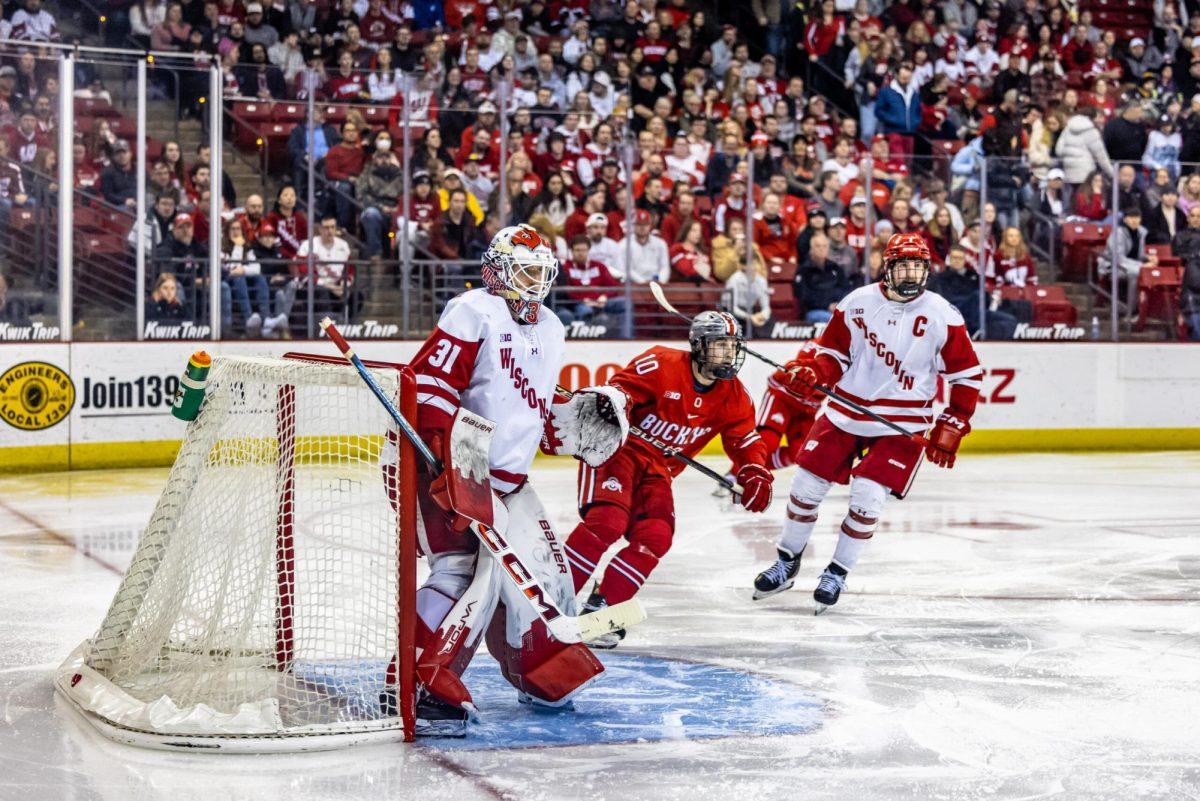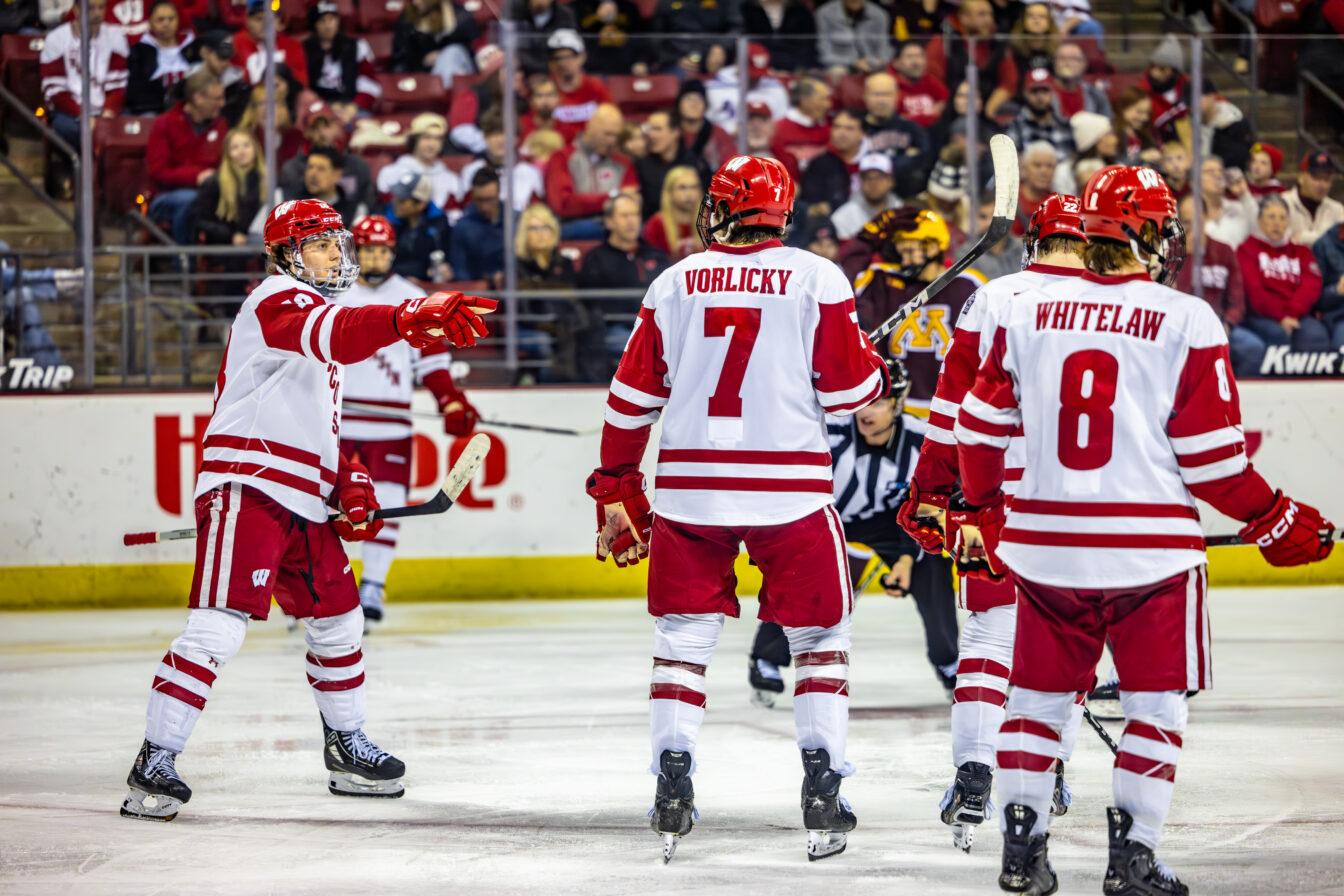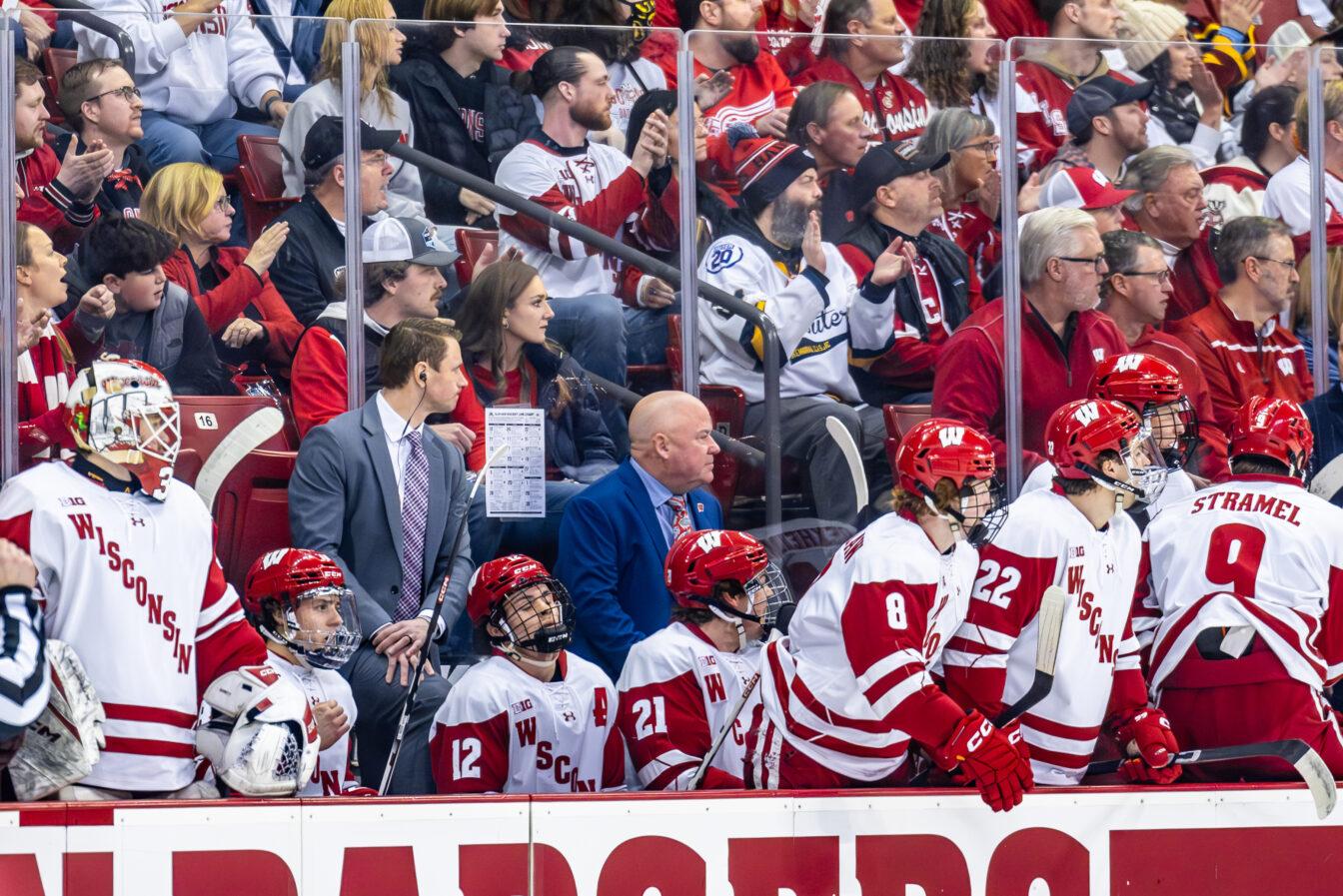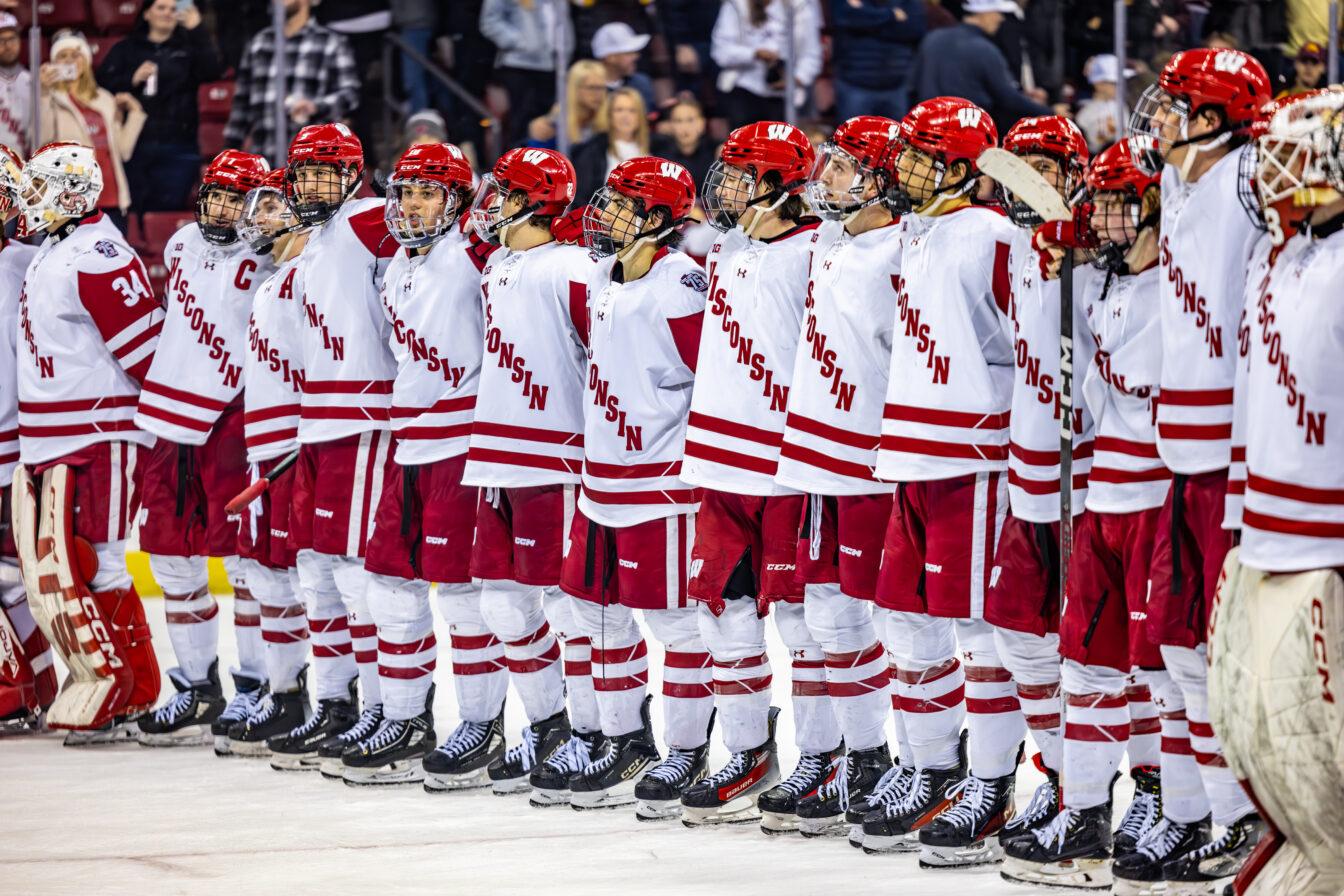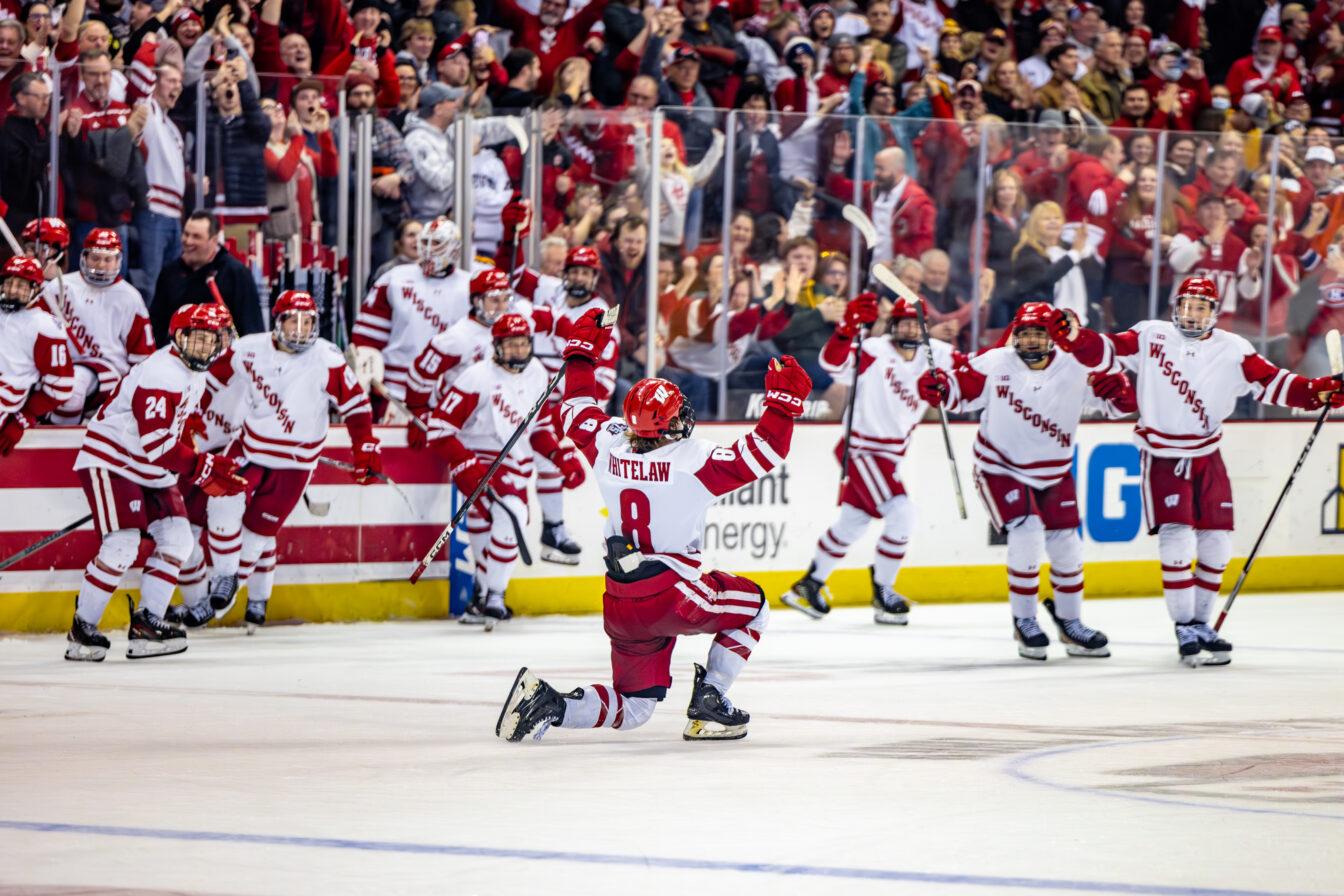
Find your role. Earn the respect of your teammates. Look for ways to improve each and every practice.
That sounds like the all-too-familiar messages an incoming freshman would receive upon entering the Wisconsin men’s hockey program.
But those guidelines aren’t reserved for teenagers. Gary Shuchuk and Bill Butters are going through that very process as first-year assistant coaches for the Badgers.
Shuchuk and Butters were hired by head coach Mike Eaves in the off-season to replace Kevin Patrick and Mark Osiecki, who left the program to take head coaching jobs elsewhere.
And like a wide-eyed true freshman, there were some early growing pains that the newly formed coaching staff had to endure.
The three coaches needed to find the balance necessary to communicate effectively with a young roster looking directly at them for leadership.
“Right away you could just tell that the new coaches didn’t want to step on anyone’s toes,” said junior assistant captain Jake Gardiner. “They didn’t want to cut guys down right away. They wanted to gain everyone’s respect.”
Eaves fully expected that adjustment period to take place. After years working alongside the same assistants, he knew the transition would be a challenge.
“We were all trying to be respectful to each other and a couple times early on I had to cross the line into another area because what was being said wasn’t quite what I felt we needed to have,” Eaves said. “But we worked through that and we aren’t having to cross those lines anymore.
“They know more about me, and it’s becoming more fun for them because they have more time around the team and more authority on the ice.”
Instead of worrying about stepping on one another’s toes, the UW coaching staff is building chemistry, and it has rubbed off on the players who have sensed the change.
“Here in the middle of the season they are a lot more used to us, and we are used to them and we respect them a lot,” Gardiner said. “It just feels like they are part of the team officially now.”
Butters, who played and coached for the University of Minnesota before coming to UW, has developed a close relationship with Gardiner, thanks to Butters’ work with the UW defensemen.
Gardiner and fellow defenseman Justin Schultz have had stellar seasons as Wisconsin’s top defensive pairing, with 58 points combined in 24 games played, and it’s Butters who is always in their ear with a word of advice when the two blue-liners come to the bench – even though time off is in short supply for the top pair.
“Me and Schultz see a lot of ice time,” Gardiner said with a smile. “We love [Butters] for that.”
Gardiner and Schultz may love Butters for the bountiful ice time, but Shuchuk loves the opportunity to coach the Badgers as a man who has always been close to the program.
Shuchuk played for UW from 1986 to 1990 and was an assistant captain for the 1990 national championship team. Before joining the staff he worked with several players during the off-season and worked as executive director of Madison Ice Inc., so when a job on Eaves’ staff opened up, Shuchuk was a perfect fit.
“Whenever there is change there are going to be differences, but I came in here with my beliefs and knew what I could bring to the table. I knew a lot of the guys beforehand, and I had worked with them individually,” Shuchuk said. “Plus, I had season tickets with my kids so I’ve watched them from afar, and being an alumni it’s great to be back.
“The hardest part about coaching is having to get up and leave, so this was a golden opportunity.”
Now after taking some time to settle in, Eaves’ team is starting click. The Badgers reeled off a seven-game winning streak and have begun to play with greater consistency.
Eaves has been the dominant voice in practice as UW has worked through the ups and downs of the season, but he hopes and expects to hear Shuchuk and Butters’ voices more often as the second half of the conference season approaches
“I want the guys to hear their voices more often so they don’t eventually start to shut me out,” Eaves said laughing.
It’s all just part of a program-wide mission to sort out individual roles and gel as a team.
“Everyone is finding their role and buying in,” Shuchuk said. “This team is coming together and this team cares about each other. That’s really half the battle.”



